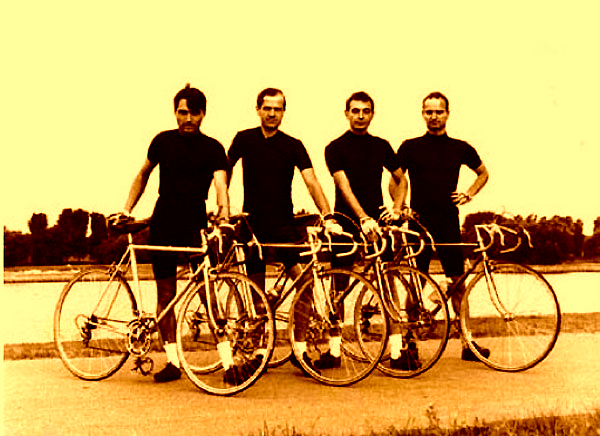
There’s a misconception that sampling has a time limit, that one can legally sample anything (a drum hit, a vocal yelp, a guitar riff) as long as it’s short. I’ve heard various guidelines set for this assumption with the two-second mark as the most common. It’s not true. If a judge or jury can identify a sound — any sound — as originating from a copyrighted source, you’re probably in trouble.
Granted, the US courts have not been consistent in how they rule on this, and it’s fair to say there’s no set precedent here. But, in the EU, this may no longer be the case thanks to repeatedly snubbed Rock-and-Roll-Hall-of-Famers Kraftwerk and the synthesized sound of banging metal.
via Billboard:
The case involves a two-second sample from “Metall
auf Metall,” which the producers Moses Pelham and Martin Haas used as a continuous background loop in the 1997 song “Nur Mir.” Although the sample consists of just two seconds of the original song, it’s recognizable and important in “Nur Mir,” which is performed by the singer Sabrina Setlur. […]
… Advocate General Maciej Szpunar advised the European Court of Justice, which is deciding a copyright case that involves Kraftwerk’s “Metall of Metall,” that even limited sampling of a recording can constitute copyright infringement. Advocate General opinions are not binding, but they’re watchedclosely, since they often predict the way the high court of Europe will decide cases.
The case is interesting as it involves only the recording (master) side of the music and not the composition (written song). The idea is that one can take a ‘sample’ of a written song in isolation — such as a
Basically, when you sample a two second clip of a track, you are sampling both the recording and the song contained within it. But it might be hard to argue that the two second snippet of the song can be protected by copyright in isolation. However, at the same time you could argue that the two second snippet of the recording is.
The ‘Metal On Metal’ case centres on the recording rights. In essence, in the 2012 court hearing, when one argument on the Kraftwerk side was that Pelham could have recreated the sounds he sampled, they were basically saying that there was no song copyright to infringe here, but that the separate recording copyright had been infringed by the uncleared sample.
In his ruling, the Advocate General wrote, “A phonogram is not an intellectual creation consisting of a composition of elements such as words, sounds,
Some of the questions referred to the European Court of Justice involve details of European law, including whether the German concept of free use is compatible with EU law. But others get to the center of the debate around copyright and free expression. Generally, most countries’ courts have held that quotation doesn’t infringe copyright when a new work refers to the original one – in a book review, or even in a parody of a song. But what about when the new work has nothing to do with the original? Such questions have increased urgency in the digital age, and this is one of several important cases on the topic.
I wonder if this will create more consistency in how the courts rule on ‘short sample’ cases in the US. And I also wonder if New Order ever had to pony up for their own short Kraftwerk sample in “Blue Monday.”
[…] in the presets. Though these are sounds and one can’t necessarily be sued for a sound (though it has happened!), the inspiration provided by the built-in options potentially send producers to common […]